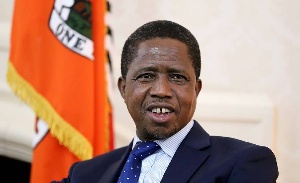- Home - News
- Elections 2024
- News Archive
- Crime & Punishment
- Politics
- Regional
- Editorial
- Health
- Ghanaians Abroad
- Tabloid
- Africa
- Religion
- Photo Archives
- Press Release
General News of Friday, 16 May 2025
Source: www.ghanawebbers.com
Cedi surge fueled by reforms, gold program, and global trends – Economist
Prof. Eric F. Oteng-Abayie is an economist at KNUST. He attributes the Cedi's rise to domestic policy reforms and global economic conditions.
By April 2025, the Ghanaian Cedi appreciated by about 16% against the US dollar. This increase is due to initiatives like the Bank of Ghana’s Gold4Oil and GoldBod programs. Fiscal discipline under an IMF-backed recovery plan also played a role.
“The Cedi’s recovery is no coincidence,” he stated. It results from deliberate policy choices that boosted foreign exchange reserves and investor confidence. The Bank of Ghana requires 20% of gold export proceeds to be converted into cedis. A $490 million forex market intervention in April helped stabilize supply.
Prof. Oteng-Abayie noted improvements in Ghana’s credit rating as contributing factors too. The temporary suspension of external debt repayments has also helped. “Ghana’s fiscal consolidation under the IMF program has reinforced credibility,” he added.
Strong export performance, especially in gold and cocoa, improved Ghana's balance of payments. Global conditions have also favored the Cedi's recovery, with a weakening US dollar benefiting many emerging markets.
“The weakening dollar due to recession fears has worked in our favor,” he explained. Record-high prices for gold and cocoa boosted export earnings as well.
However, he cautioned that ordinary Ghanaians may not feel these benefits yet. Inflation dropped to 21.2% by April 2025, but prices remain sticky.
“We see price stickiness where prices rise quickly but fall slowly,” he observed. Businesses are hesitant to reduce prices due to uncertainty over currency stability and high operational costs.
He compared this situation to past experiences in 2007 and 2017 when currency stabilization did not lead to consumer relief without structural reforms.
“Without structural reforms, gains are often short-lived,” he remarked. He emphasized the need for measures addressing domestic cost pressures and promoting market competition.
In his recommendations, Prof. Oteng-Abayie called for continued fiscal discipline and energy sector reform. He also highlighted the importance of developing transport infrastructure and strengthening market regulation.
“To ensure long-term stability, we must diversify beyond commodity exports,” he advised. Authorities should manage public expectations transparently while supporting gradual price adjustments in import-dependent sectors.
The Cedi became one of the world’s best-performing currencies in 2025 after a volatile year in 2024 when it lost nearly 24% of its value. This year's gain coincided with declining inflation and improved macroeconomic confidence, presenting an opportunity for deeper reforms toward lasting stability.











